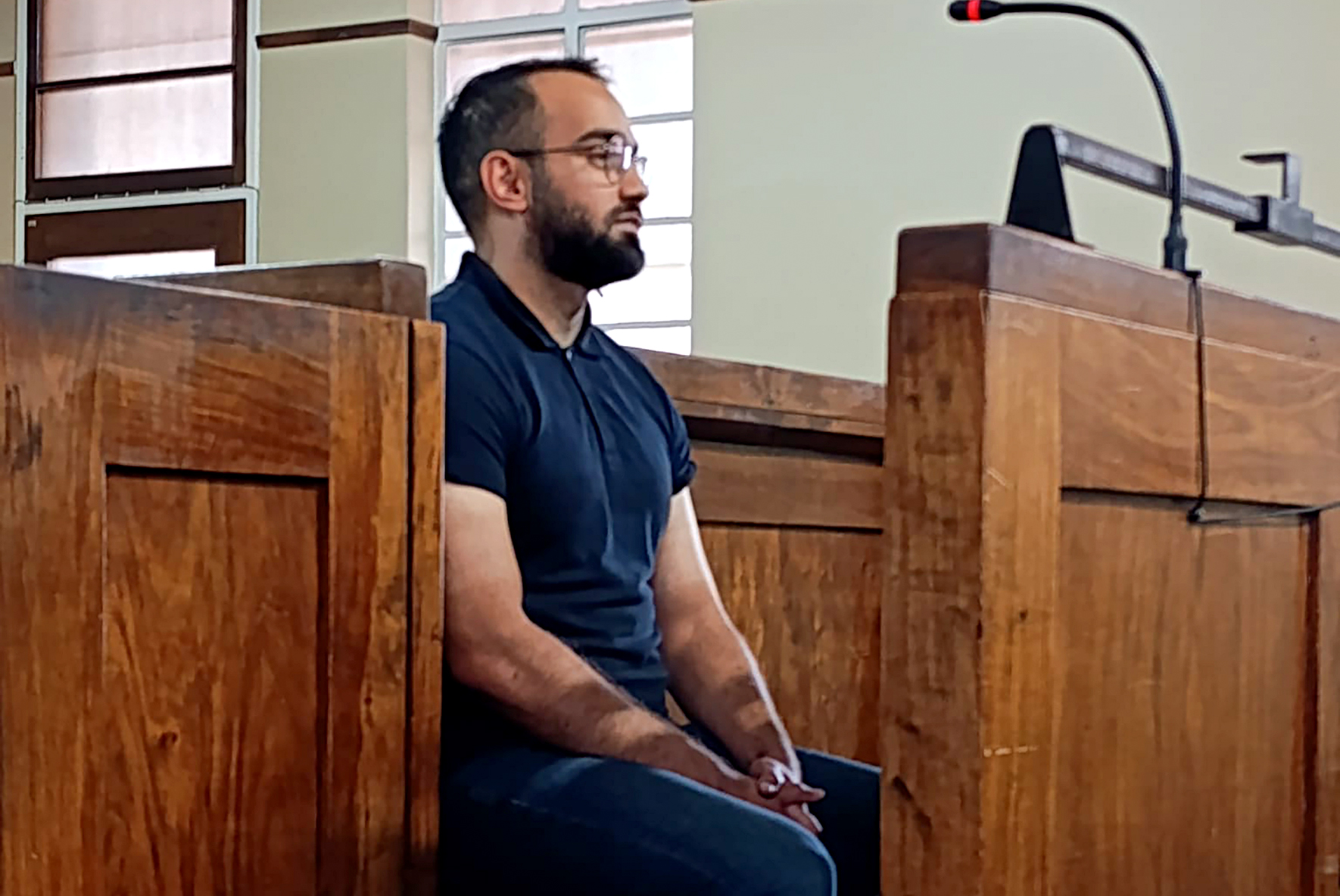Critical to the prosecution of terror financing accused Ziyadh Hoorzook is a US court document stating that al-Sadaqah — the group the Hawks allege Hoorzook donated to — is a known terrorist fundraising entity posing as a charity.
Hoorzook (35) is appearing in the Lichtenburg Magistrates’ Court in North West where he faces a charge of contravening the Protection of Constitutional Democracy Against Terrorist and Related Activities Act.
He was arrested at his home in Johannesburg on 3 January following a nearly seven-year-long investigation after the Financial Intelligence Centre and the Hawks received information about suspicious transactions allegedly linked to terror financing.
The document, submitted to a US court in August 2020, details a civil action against 155 owners of virtual currency assets — cryptocurrency — and their alleged links to the funding of terrorist organisations.
Notably, point 65 in the document states that an organisation termed al-Sadaqah — the same organisation the Hawks allege Hoorzook donated to — is a known terrorist fundraising entity posing as a charity.
Al-Sadaqah has been on the United States’ radar as a terrorist entity from at least as early as 2017. Testimony to the US House of Representatives Subcommittee on Terrorism and Illicit Finance on 7 September 2018 noted that “late last year, CSIF began monitoring a jihadist funding campaign on Telegram, calling itself al-Sadaqah, Arabic for the charitable giving … regularly asking followers to donate anonymously with bitcoin.”
Fundraising for al-Sadaqah was primarily solicited through its Telegram channel, with posts that included statements such as “donate anonymously with cryptocurrency” and “support the mujahidin [sic[] in Syria with weapons, financial aid, and other projects assisting the jihad”.
Crucially, the document includes a list of 155 cryptocurrency wallets subject to asset forfeiture and seizure due to their use in the funding of terrorism, with two of these addresses linked to al-Sadaqah.
 An example of a post by al-Sadaqah from its Telegram channel is included in the United States Civil Action documentation. (Picture: Supplied)
An example of a post by al-Sadaqah from its Telegram channel is included in the United States Civil Action documentation. (Picture: Supplied)
The Hawks allege that Hoorzook’s donation took place through the South African cryptocurrency exchange Luno on 30 November 2017, to the value of R11,500. Daily Maverick analysis of the cryptocurrency addresses linked to al-Sadaqah indicates a single transaction on that date — a deposit to al-Sadaqah that received 0.07574079 BTC, or $774.88, or R10,693.34, an amount consistent with a payment of R11,500 after transaction fees.
As of now, Daily Maverick has not been able to establish the details of the sender’s address.
Bail opposed
Prosecutor Rodger Mareume has opposed bail for Hoorzook, citing the seriousness of the charges he faces.
Mareume presented the 2021 US District Court of Columbia judgment, along with testimony from Warrant Officer John Sithole, who claimed evidence on Hoorzook’s devices showed he knowingly funnelled money to a terrorist group in Syria.
Hoorzook, however, asserted in his affidavit: “I intend to plead not guilty despite having the disadvantage of a full docket disclosure.”
Hoorzook’s lawyer Mohammed Razak argued the donation was an innocent contribution to al-Sadaqah, a group only later alleged to have terrorist ties. “Warnings of its connections to terrorism surfaced long after Hoorzook made his donation,” Razak stated, dismissing the claims as part of a “misaligned narrative of mischief”.
Sources ancillary to the US intelligence community within South Africa have speculated to Daily Maverick that Hoorzook’s prosecution is a litmus test of the institutional capacity and appetite of both the Hawks and the National Prosecuting Authority (NPA) to investigate and successfully prosecute terrorism-related matters.
Another source within South African law enforcement, who spoke on condition of anonymity, noted that given the lack of expertise and experience in dealing with cryptocurrency-related matters, the Hoorzook case would be a test for the NPA and could lead to further arrests should the prosecution be successful.
In part, South Africa’s utility here is clear — after being greylisted by the Financial Action Task Force (FATF) in February 2023 due to, among other reasons, deficiencies in money laundering and terrorism financing, as well as challenges in collaborating on cross-border financial crimes, the Hoorzook case could be an example of the country’s efforts to address these shortcomings.
A senior training coordinator at the Institute for Security Studies (ISS), Willem Els, concurs with these assessments and the importance of Hoorzook’s prosecution as part of removal from the greylisting.
“Especially in terms of the FATF’s Immediate Outcome 9 (Implementation of Targeted Financial Sanctions Related to Terrorist Financing), South Africa needs to demonstrate the political will, capacity and technical skills to successfully investigate and prosecute terror funding cases,” he said.
Read in Daily Maverick: From Bitcoin to bail: Terror funding accused’s court appearance highlights South Africa’s growing risks
With the greylisting costing South Africa an estimated 1%–3% of the country’s GDP, success in matters such as Hoorzook’s prosecution could well make a difference when the country makes its representations to the FATF in February 2025, appealing for removal from the greylist and a return to compliant status.
Hoorzook’s case underscores South Africa’s evolving response to terrorist financing conducted via cryptocurrency. A successful prosecution would probably set a vital precedent for local law enforcement and judicial systems, enhancing the country’s prospects for removal from the FATF’s greylist. DM
Additional reporting by Michelle Banda




 An example of a post by al-Sadaqah from its Telegram channel is included in the United States Civil Action documentation. (Picture: Supplied)
An example of a post by al-Sadaqah from its Telegram channel is included in the United States Civil Action documentation. (Picture: Supplied)
